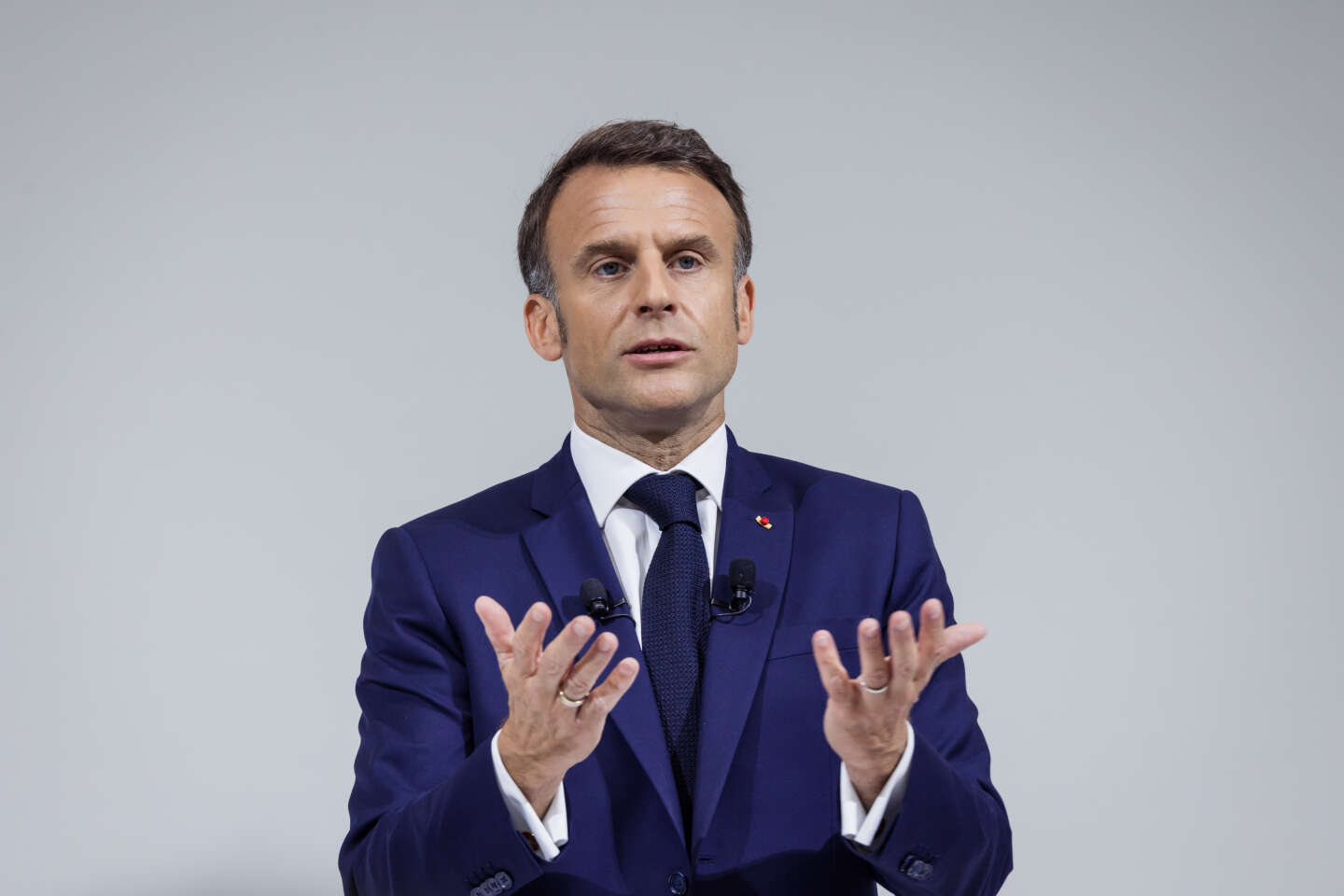


Emmanuel Macron will stay at the Elysée "until May 2027," regardless of the outcome of the parliamentary elections on June 30 and July 7. The French president made the commitment in a "Letter to the French" published on Monday, June 24, in the regional daily press.
With poll after poll showing the prospect of a relative majority for the far-right Rassemblement National (RN), which would result in the Assemblée Nationale being blocked (the RN can't rely on possible allies in the center nor the left), the pressure is on Macron to tender his resignation should this be the unprecedented outcome of the snap elections he called.
The leader of the RN, Marine Le Pen, suggested as such on Friday, June 21, during a trip to Courrières, in the northern Pas-de-Calais constituency where she is campaigning for re-election. In the event of a "political deadlock," "the only way for the president to potentially emerge from a political crisis will be to resign," she said. She added that this was "an observation," not "a request." Macron "will do exactly what he wants and what the Constitution gives him the freedom to do," she added.
The president of her party, Jordan Bardella, also imagined the hypothesis of a relative majority on Sunday in Le Journal du Dimanche. He would only agree to be prime minister if the French gave the RN an absolute majority, because "without an absolute majority, I'd be at the mercy of a vote of no confidence and I'd naturally leave after a few days," he said. Bardella stepped up the pressure on Macron, asserting the French president would have to answer the question of his resignation in such a scenario. "It is he who has brought about this situation, it is he who provoked this dissolution," he argued.
'Worry, rejection, sometimes even anger at myself'
Macron was quick to respond, ruling out resigning in his "Letter to the French," whatever the outcome of the election. "You can trust me to act until May 2027 as your president, protector at all times of our Republic, of our values, respectful of pluralism and your choices, at your service and that of the Nation," he wrote to his "dear compatriots."
It's not the first time Macron has said he won't resign. Nor is it the first time he's acknowledged the possibility of having to govern in cohabitation with a prime minister from a different political camp. Questioned by the press on June 13 during the G7 summit in Italy about the value of his voice when he could be stripped of some of his powers after the second round of the parliamentary elections on July 7, he said that foreign heads of state "know our Constitution," even if the distribution of powers regarding foreign policy is more a matter of tradition than of basic law.
You have 61.4% of this article left to read. The rest is for subscribers only.
